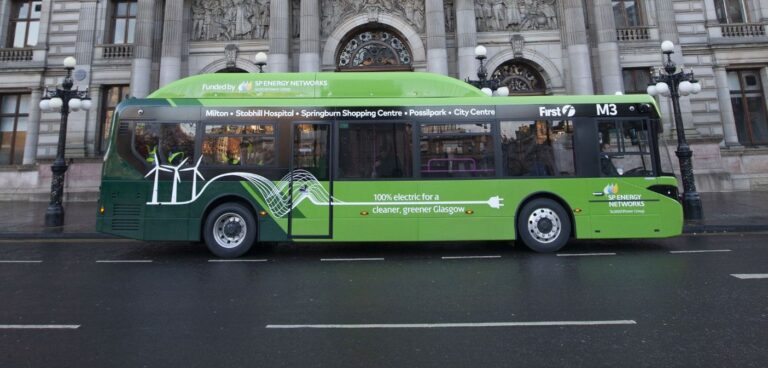A second round of the Scottish Ultra-Low Emission Bus Scheme (SULEBS) will see £40.5m awarded to operators looking to switch to sustainable technology.
Some 215 diesel buses will be replaced with new battery-electric models through the SULEBS programme, which saw some 57 buses supported through the first round.
To help meet demand, the intended budget for the second round has been increased by £15m.
Read more: Scottish Ultra-Low Emission Bus Scheme opens
Furthermore, 172 of the buses will be built in central Scotland by manufacturer Alexander Dennis.
Paul Davies, managing director, Alexander Dennis, said: “These zero-emission buses will be built at our factory in Falkirk and therefore ensure this Scottish government investment is made domestically, allowing the benefits to be felt across our communities whilst helping to underpin skilled jobs.”
The Scottish government has also published a new information and ideas pack that shows how the bus and finance sectors are innovating to speed up the transition to net-zero.
The first report from the Bus Decarbonisation Taskforce brings together senior leaders from the energy, bus and finance sectors to co-design a pathway to a fully decarbonised bus fleet.
New routes for financing sustainable buses, building on government support, is included in the information pack.
Scottish cabinet secretary for transport, infrastructure and connectivity, Michael Matheson, added: “Our bus decarbonisation work, both through SULEBS and the taskforce, is part of a wider package of support for our bus industry – including long-term funding of over £500m for bus priority infrastructure.
“More journeys are made by bus compared to any other public transport mode and a vibrant bus industry can provide the solutions to complex challenges in our society.
“By helping operators to invest in a greener fleet we can support our green recovery – and keep more people moving with fewer carbon emissions and better air quality as a result.”





